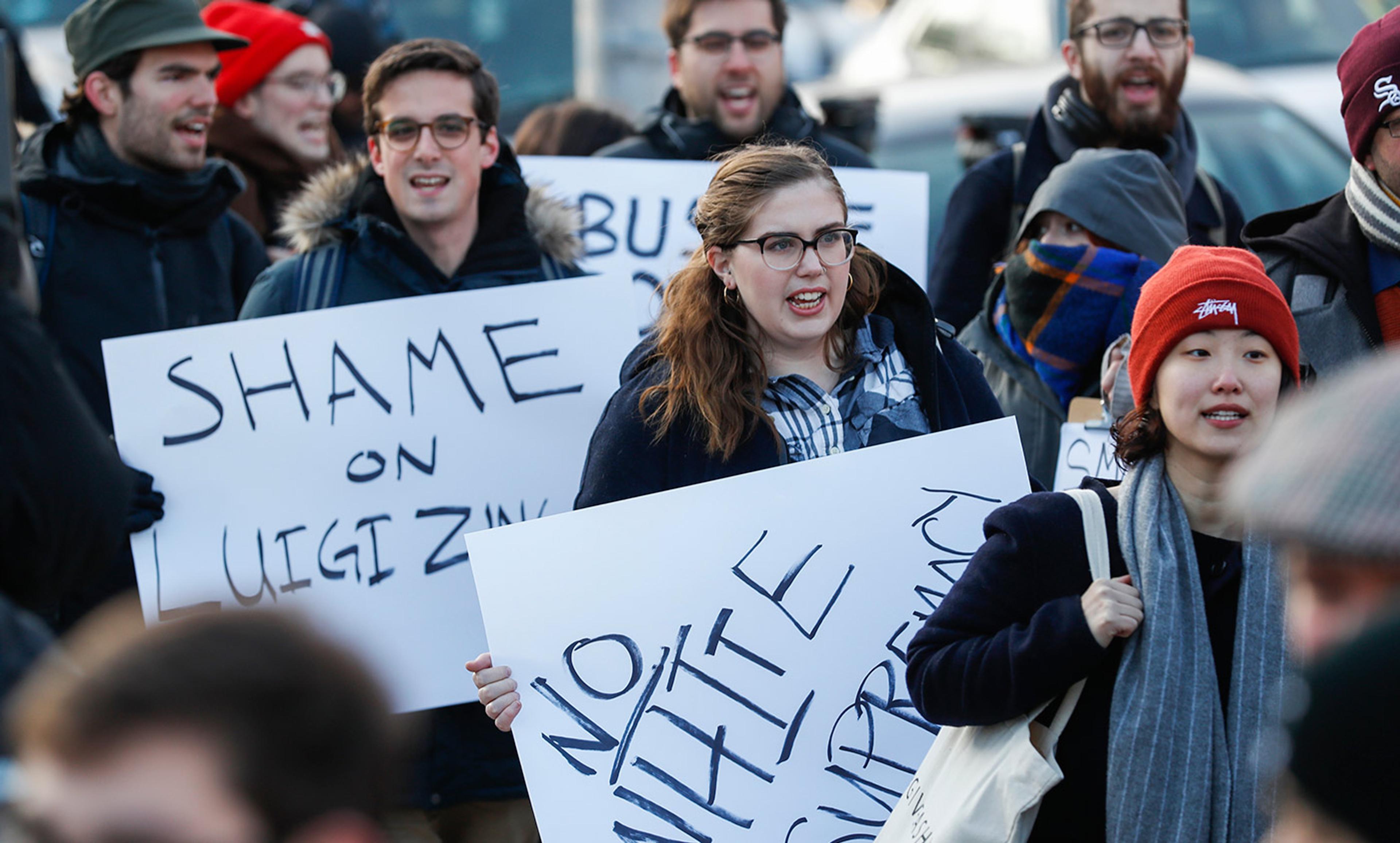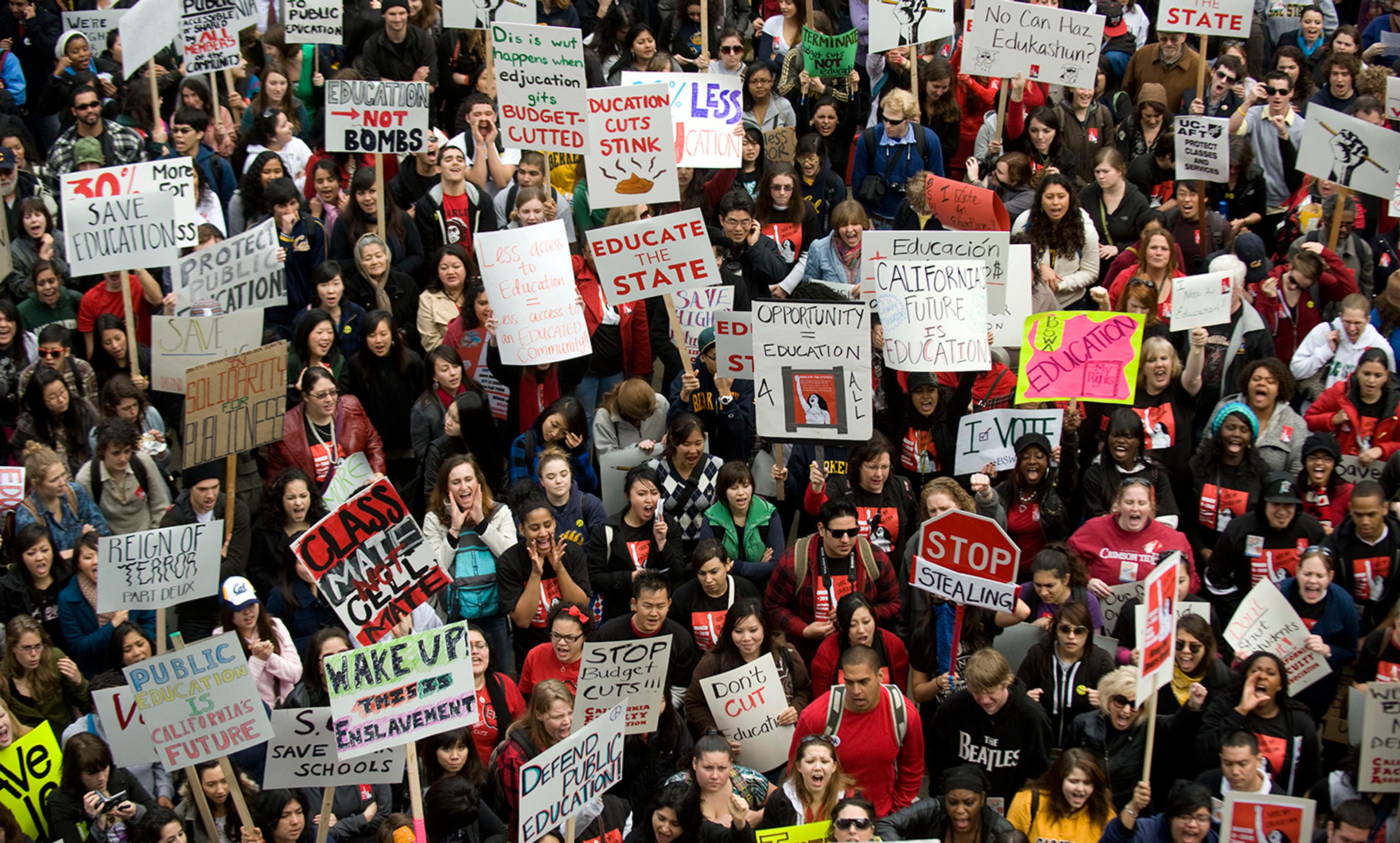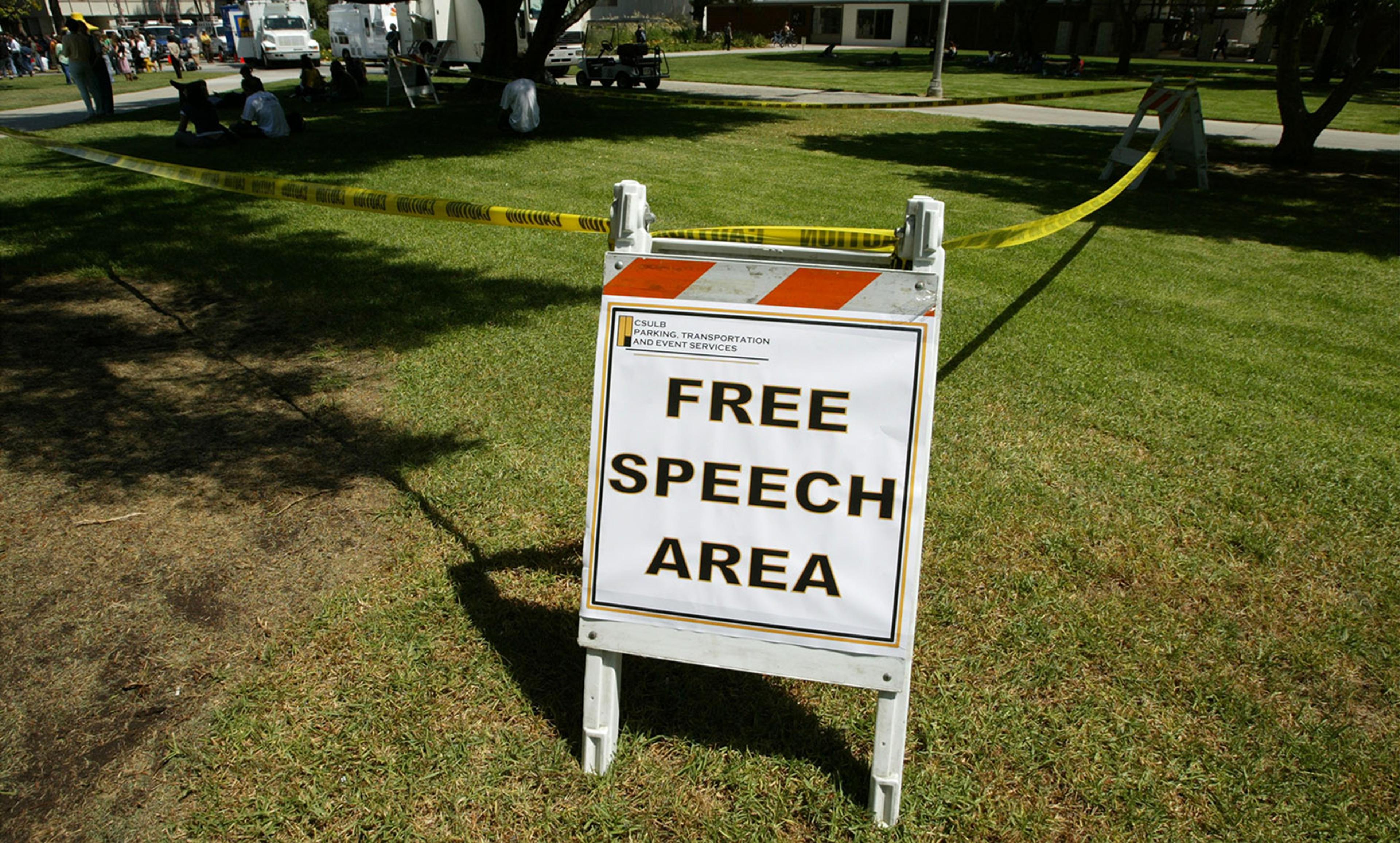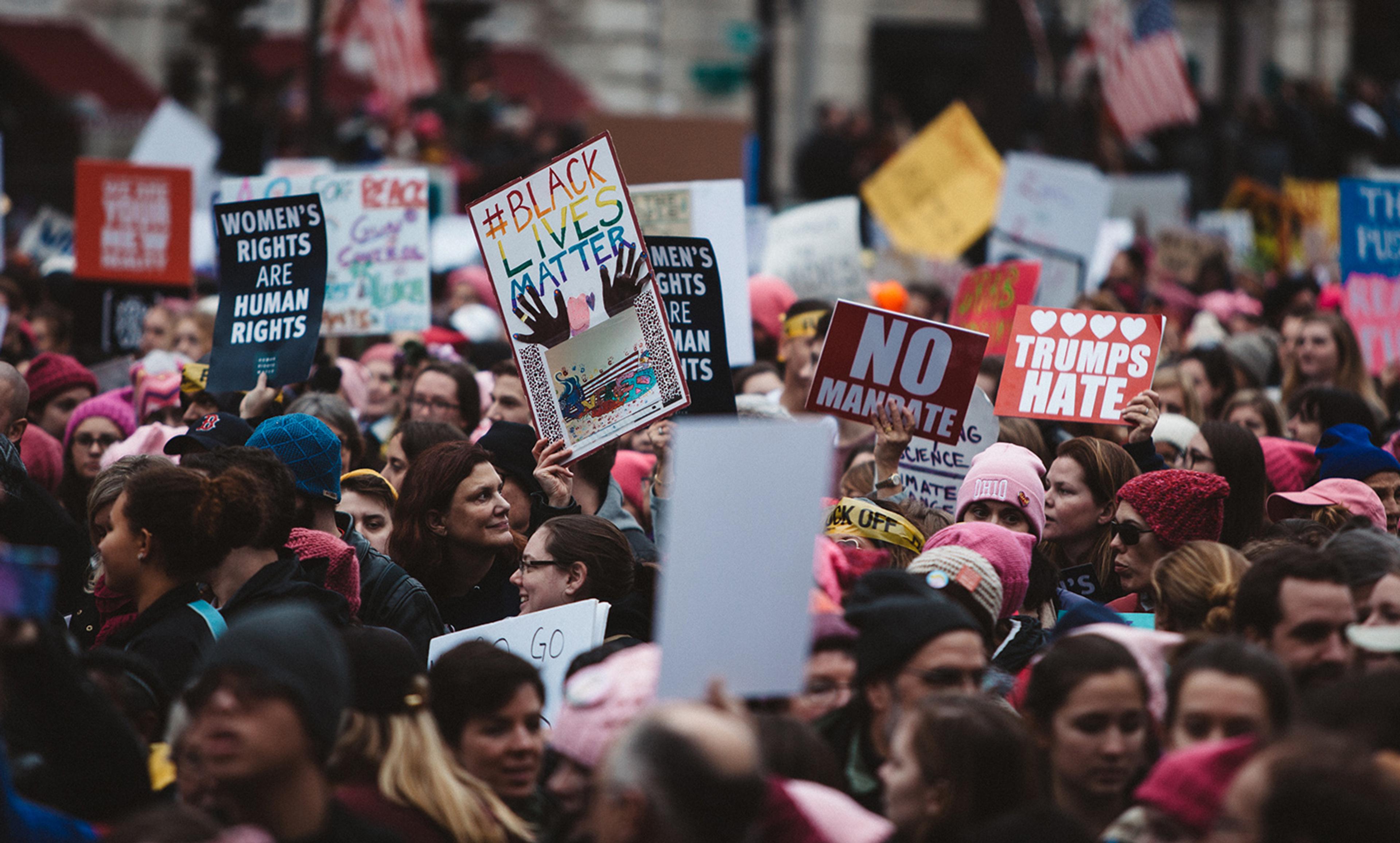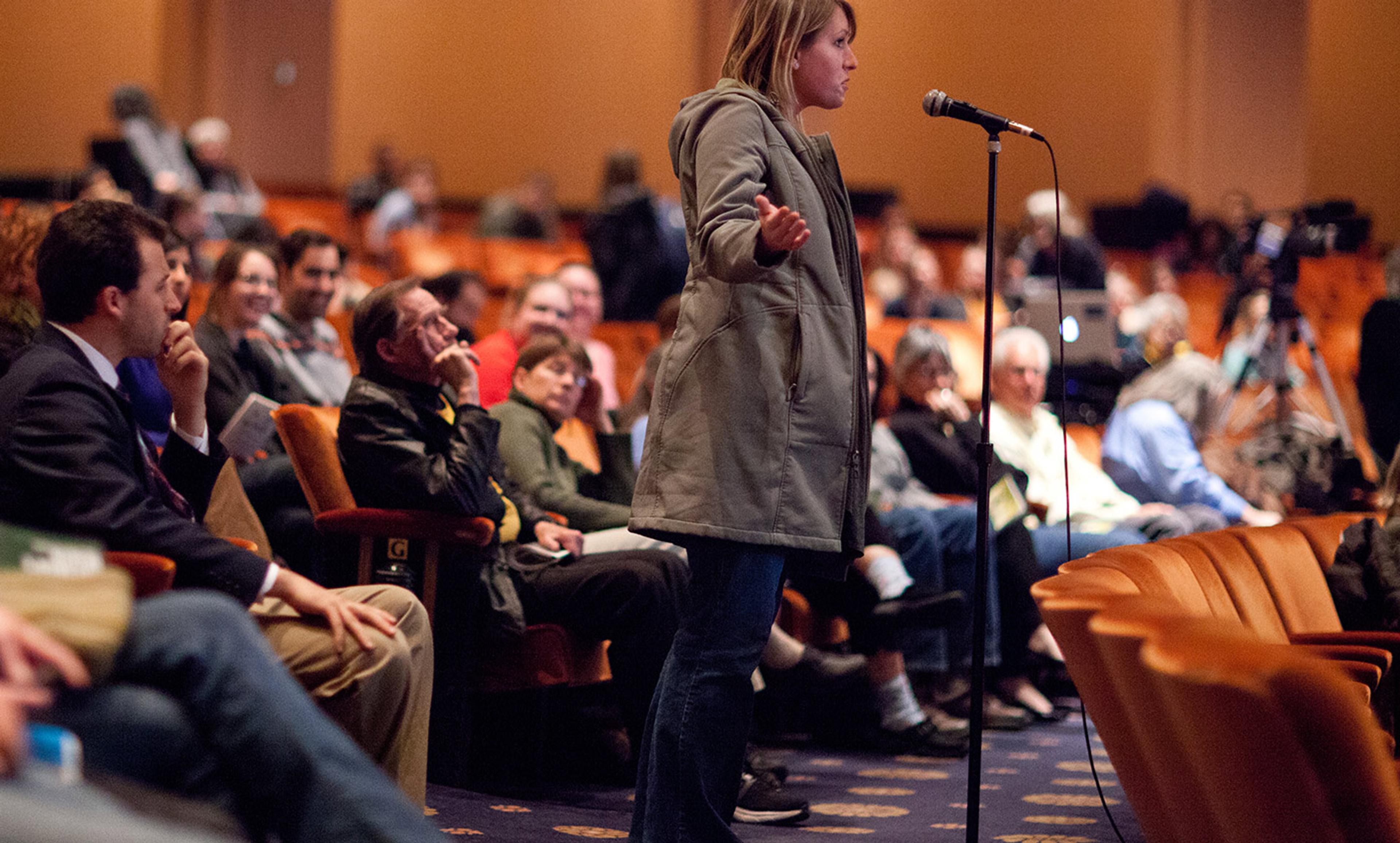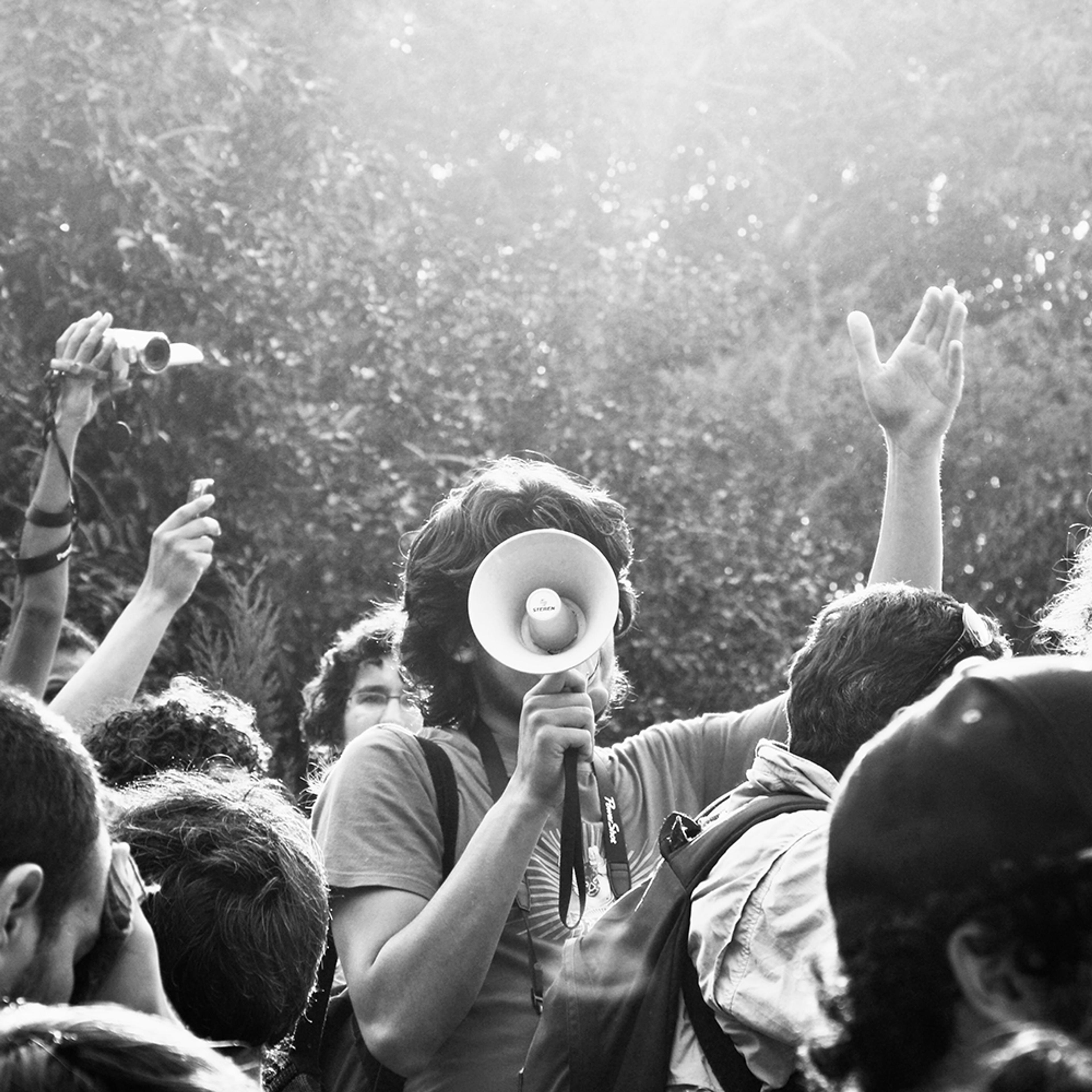Students demonstrate the invitation of Steve Bannon to come to the University of Chicago on 25 January 2018 in Chicago. Jose M Osorio/Chicago Tribune/Getty
Protests are a time-honoured tradition on college campuses – memorably exemplified by the protests of 1968 by the grandparents of the current generation of students. They reflect the passionate energies of students discovering their own priorities and commitments, and finding their voice in national conversations. Protests spring from the stimulating intellectual environment and vigorous debate found on college campuses, where students are willing to think about more than just the upcoming party or how to grab the rungs on the career ladder.
Not that universities should encourage student protests, but neither should they try to quash them. What universities must insist on, however, is that student protests be compatible with the larger functioning of the university; they should not hinder the ability of anyone on campus to pursue their own activities or the central mission of the university in advancing and disseminating knowledge. There are a lot of people on a college campus, and university administrators need to coordinate their activities without getting in each other’s way. Protests are legitimate among those activities, but they do not take priority.
Students are not always inclined to respect those boundaries. Of late, student activists have found themselves provoked by disagreements with guest speakers whom faculty members have invited to speak to classes; by the subjects and readings that professors have assigned in their classes; even by the behaviour of professors themselves. Activists have found such controversies sufficient to justify disrupting classes in order to voice their objections. In doing so, they undermine the ability of other students to learn and to take full advantage of their own collegiate opportunities, as well as the ability of professors to exercise their academic freedom to teach unmolested.
Securing academic freedom in universities so that professors can publish and teach the fruits of their expertise ‘without fear or favour’ as the American Association of University Professors’ (AAUP) Declaration of Principles put it in 1915, has been an ongoing struggle, largely against the corrupting influence of forces outside the university proper, be they wealthy benefactors, politicians or the general public. But the ability of a university teacher to communicate, in the words of the AAUP, to his students ‘the genuine and uncoloured product of his own study or that of fellow-specialists’ can as easily be threatened from within, by pressure from students or campus administrators. Students in the classroom deserve from the professor ‘the best of what he has and what he is’ – professional judgment, ‘intellectual integrity’, and an ‘independence of thought and utterance’. Universities are valuable, in part, because they serve as an ‘inviolable refuge’ from the tyranny of democracy that demands that everyone think alike, feel alike and speak alike. The university is ‘an intellectual experiment station, where new ideas may germinate and where their fruit, though still distasteful to the community as a whole, may be allowed to ripen’.
Student protestors who interfere with classroom teaching because a professor has departed from their preferred orthodoxy are as guilty of intruding on academic freedom and subverting the mission of the university as the corporate baron who seeks the dismissal of a disfavoured professor who has offended that baron’s economic or ideological interests.
In 2017, activists at Northwestern University in Illinois forced the cancellation of a sociology class because they objected to its students hearing from and interacting with an agent of the United States’ Immigration and Customs Enforcement. This January, activists at the University of Chicago launched a sit-in in the classes of a business school professor in an attempt to force him to disinvite the former White House aide Steve Bannon from speaking on campus. And in 2017, activists at Reed College in Portland, Oregon engaged in an extended in-class protest of a core humanities course until the faculty agreed to shift its focus away from the origins of Western civilisation. By disrupting professors from teaching their courses as they think best, and preventing other students from participating in such courses as they wish, activists assert their own superior authority to dictate the limits of academic freedom and to demarcate the boundaries of acceptable intellectual enquiry on campus.
To be sure, there are reasonable arguments to be had over the value of hosting in-class conversations with government agents, or re-structuring humanities courses to better reflect the history of the students taking them: some might say there were even better arguments to be made against inviting Bannon to campus. However, by protesting, instead of arguing, student activists risk having those arguments drowned in the wash of media publicity that invariably comes their way. They will be seen, to be sure, but they very likely will not be heard.
In practical terms, universities should insist on boundaries to how those debates are conducted, boundaries that draw the line at disruptions that impede both teaching and learning. Students concerned about the fossil-fuel industry should not be allowed to prevent other students from hearing their professors lecturing on petroleum engineering. Students who regard Marxism as a dangerous philosophy should not be allowed to disrupt sociology classes on Marxist theory. Campus protests are valuable as a means for calling attention to a cause and generating interest in a set of ideas. They are sometimes a necessary prelude to action. But they hamper rather than advance the mission of the university when they go beyond publicising issues to become instruments for denying others on campus the ability to pursue their own educational projects.
Academic freedom in universities has been hard-won, and so universities have an obligation to prevent protests from intruding into the classroom. University codes of conduct routinely try to strike just such a balance, by facilitating freeranging discussion of any set of ideas or concerns that teachers or students might want to raise and explore, while prohibiting actions that infringe on the rights of others to use and enjoy university facilities and programmes. Teaching students is at the heart of what universities do. But teaching requires that students and their professors be able to gather together on campus unmolested by those who might object to what is being taught, how it is being taught, and by whom. Campus regulations should be designed and administered to protect that most basic educational function of the university.
Speak Freely: Why Universities Must Defend Free Speech by Keith Whittington is out now via Princeton University Press.
